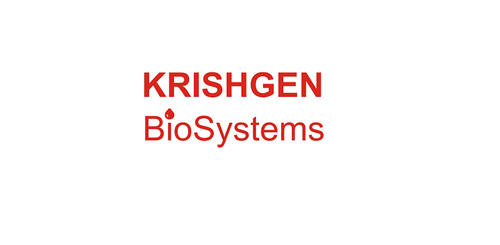Product Description
Human Cystathionine gamma-lyase (CTH) ELISA Kit | AE58971HU | Abebio
Species Reactivity: Human (Homo sapiens)
Abbreviation: CTH
Alternative Name: MGC9471; cystathionase|cysteine desulfhydrase|gamma-cystathionase|homoserine deaminase|homoserine dehydratase
Application: ELISA
Range: 0.312-20 ng/mL
Sensitivity: 0.122 ng/mL
Intra-Assay: ≤6.5%
Inter-Assay: ≤9.2%
Recovery: 1, 01
Sample Type: Serum, Plasma, Other biological fluids
Detection Method: Sandwich
Analysis Method : Quantitive
Test Principale: This assay employs a two-site sandwich ELISA to quantitate CTH in samples. An antibody specific for CTH has been pre-coated onto a microplate. Standards and samples are pipetted into the wells and anyCTH present is bound by the immobilized antibody. After removing any unbound substances, a biotin-conjugated antibody specific for CTH is added to the wells. After washing, Streptavidin conjugated Horseradish Peroxidase (HRP) is added to the wells. Following a wash to remove any unbound avidin-enzyme reagent, a substrate solution is added to the wells and color develops in proportion to the amount of CTH bound in the initial step. The color development is stopped and the intensity of the color is measured.
Product Overview: CSE is an enzyme which breaks down cystathionine into cysteine and alpha-ketobutyrate. Pyridoxal phosphate is a prosthetic group of this enzyme.The bioavailability of cysteine is rate-limiting for the hepatic synthesis of glutathione. Cysteine is provided through either the diet or the transsulfuration pathway, in which cystathionine derived from methionine is transformed into cysteine by cystathionine gamma-lyase.Mutant mice lacking CTH displayed pronounced hypertension and diminished endothelium-dependent vasorelaxation. Cystathionine was physiologically activated by calcium and calmodulin, which is a mechanism for H2S formation in response to vascular activation. Yang et al. (2008) concluded that their findings provided direct evidence that H2S is a physiologic vasodilator and regulator of blood pressure.
Stability: The stability of ELISA kit is determined by the loss rate of activity. The loss rate of this kit is less than 5% within the expiration date under appropriate storage condition. The loss rate was determined by accelerated thermal degradation test. Keep the kit at 37°C for 4 and 7 days, and compare O.D.values of the kit kept at 37°C with that of at recommended temperature. (referring from China Biological Products Standard, which was calculated by the Arrhenius equation. For ELISA kit, 4 days storage at 37°C can be considered as 6 months at 2 - 8°C, which means 7 days at 37°C equaling 12 months at 2 - 8°C) .
 Euro
Euro
 USD
USD
 British Pound
British Pound
 NULL
NULL












